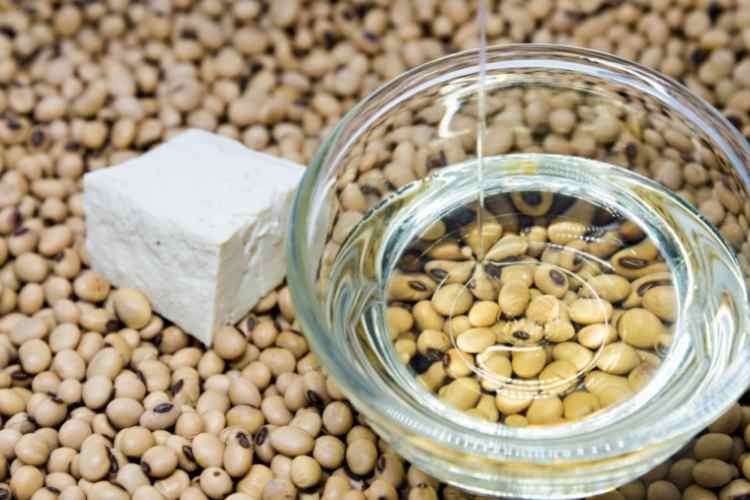Native to Eastern Nigeria, African oil bean seed is a nutrient-packed food. The scientific name of the African oil bean is Pentaclethra macrophylla and it is generally produced by local fermentation. This traditional food condiment has many uses but it is highly known for its culinary purposes. The seeds are sliced and used to prepare many mouthwatering dishes such as abacha, nkwobi, salad, soups and vegetable yam. In this article, I will tell you about Oil Bean and the health benefits of Of Oil Bean, so read this article carefully to get the complete information.
Other popular names of Oil Bean –
- Ukpaka
- Ugba
- Apara
- Ukana
- Pentaclethra macrophylla
Nutritional value of African Oil Bean seed (Ukpaka or Ugba) –
The key nutritional properties of African oil bean seed include – iron, sodium, copper, zinc, calcium, potassium and magnesium. This food condimentis also a good source of phytochemicals like – tannins, sterols, alkaloids, flavonoids, glycosides and saponins.
Health benefits of oil bean –
- Anti-inflammatory properties – The African oil bean hasanti-inflammatory properties and its bark and seeds are widely usedin dermatological purposes and producing local ointment for treating rashes, itches, insect bites, cuts and wounds. People also use the burnt pods with shea butter for treating boils and inflammations.
- Anti-bacterial properties–Due to antibacterial properties, African oil bean seeds are highly used for fighting Bacillus cereus, Klebsiella pneumonia, Staphylococcus aureus and Bacillus subtilis. Its content helps in promoting the skin’s elasticity and radical free appearance.
- Anti-microbial properties–The plant contains sterols for tackling microbes such as Staphylococcus aureus.
- Anthelmintic properties – The bark of the African oil bean tree is used for preparing herbal medicines in order to destroy parasitic worms.
- Culinary purposes –African oil bean seeds and allowed to undergo a fermentation process before being used for preparing assorted delicacies including sausages, porridge, salad, soups and vegetable yam.
- Cancer treatment –Studies reveal that African oil bean seeds reduce cancer growth and tobacco-related diseases due to phytonutrient like flavonoid. Consuming fermented African oil bean seeds as a liquid food supplement is a great way toreducecancer growth and maintain good health.
- Treatment of Gastrointestinal diseases – The stems, leaves and bark of the African oil bean seed are used for treating gastrointestinal diseases such as bloating, constipation and diarrhea.
- Lowers the Cholesterol level – Being a rich source of saponins, African oil bean seed is highly effective inminimizing plasma cholesterol. African oil bean seed also contains unsaturated fatty acids and manganese that regulate cholesterol levels in the body by enlarging the veins and efficient blood flow in the body.
- Animal feed production – African oil bean seeds are a rich source of nutrients such as amino acids, proteins, minerals and fatty acids. Studies reveal that oil beans areeffective to use in the production of animal feeds especially when fortified.
- Treatment of Leprosy–For treating leprosy sores, the anthelmintic bark of the African oil bean tree is crushed and used as decocted.
- Farming purposes – The wood and leaves of oil beansplant can be spread over other growing plants to enrich or insulate the soil. Also, it supports other growing plants and its trunk serves as timber for structural work.
- Infertility Treatment – African oil bean seeds are used to prepare herbal medicines for treating infertility.
- Obesity Control – Beinga rich source of phytoestrogens, the African oil bean plant is taken as a nutritional and vitamin supplement in order to control obesity and overweight.
- Treatment of Fever – The African oil bean leaves can be decocted with bush pepper and used for treating fever.
- Treatment of Gonorrhea – The seeds, fruits, bark and leaves of the African oil bean tree are useful for tackling gonorrhea.
Related: What is Ipil Ipil and Health Benefits of Ipil Ipil Seeds
Commercial Purposes of the African Oil Bean –
The African oil bean seeds are highly used commercially for producing soap, candles and cooking oil. Enclosed in brownish shells, these edible seeds are used for making dresses, bangles, necklaces, ear rings, jewelry pieces, beads, traditional dancing costumes, rosaries and bags. The wood of the oil bean serves as firewood and is used for generating charcoal.
How to prepare Ugba (African Oil Bean Seed)?
- Crack the African oil bean shells to remove the seeds before consumption.
- Boil seeds in water for 14-18 hours.
- The cooked seeds are sliced into thin strips and soaked in water.
- Wash and wrap them in green leaves for three to four days for fermentation.
- After fermentation, the Ugba can be used for preparing assorted mouthwatering dishes and recipes.
Side Effects of African Oil Bean Seed –
According to a few research, African oil bean seeds (Ugba)contain a poisonous alkaloid, paucine and a growth depressant, caffeoylputrescine.For reducing its effects, doctorsadvise cooking and fermenting the oil bean seeds before its intake.
Final Words –
The seeds, stems, leaves, barks and roots of the African oil bean tree works wonders for medicinal and commercial purposes. The health benefits of African oil beans cannot be ignored as this plant has numerous benefits along with it.

